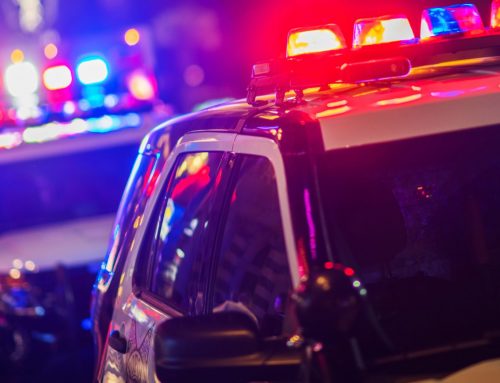Advocate: I suppose we should talk about the two Dallas officers who have been killed by “friendly fire” during the past few weeks. You know, when I make a mistake at work, half of the time, no one really knows about it, and usually it’s not all that big of a deal anyway. When an officers makes a mistake, though, it’s a different story.
Rick: When one of us makes a mistake, an accidental discharge (of a weapon), we can’t pull it back. It’s over with.
Mike: Yeah, it was just an accident yesterday. It was just something that occasionally happens. When you run a warrant like that, there’s a lot of confusion, everyone’s trying to cover all the bases, secure everything. Any time you do that, though, there that brief moment when you just kind of hold your breath.
The result that we need to expect from this is that we’ve learned something. Hopefully, we’ll come out of this with better procedures.
Advocate: I read in the Dallas Morning News’ stories about the shooting that some officers had speculated that the first shooting could even have been part of a conspiracy, and that these shootings have really devastated department morale. Those were the words in the paper.
Pam: Conspiracy? I didn’t see anything about that.
Mike: It was in the story. I don’t know where that came from, though. I don’t see how it could have been a conspiracy.
Rick: I think some people just have conspiracy on their minds these days.
Mike: (This type of shooting) may not really hurt morale, I don’t think that’s the word. It’s more saddening, a hurt. But a tragedy can bond people together. It can actually deepen everyone’s dedication to what they’re doing.
Pam: Every May 15 on police memorial day, we remember all of the officers.
Rick: It could have been any one of us in the same situation. There’s kind of a common bond that everyone has. It could have been me.
Mike: It’s more of a recommitment…
Pam: To be safe…
Mike: You tend to be a little more safe in what you do; you re-examine how you do or would handle a similar situation.
When it’s a bad guy, you can kind of vent your anger on them. With this particular officer, shooting another officer is really the worst thing you can do.
Rick: It’s a nightmare. Chief Rathburn did the right thing by not releasing the guy’s name. It’s just so traumatic to be involved in something like this.
Mike: The chief said the incident wouldn’t scale back the war on drugs. And sure enough, this morning, we ran a warrant, but everyone was really sensitive about it. They told us not to bring a shotgun. And we knew the guy (being searched) was armed.
Rick: You can plan and plan and plan, and it comes down to you just don’t know what might happen. You just don’t know.
Advocate: How about your families? How do they react to this type of thing? I know if I’m not home when I’m supposed to be, my wife starts becoming worried. And I’m not exactly in danger of being shot.
Rick: My wife, the main thing she wants to know was whether it was an accident. She’s a pharmacist, and in that job if you miss a decimal point on a prescription, you have an accident. She knows what it can be like.
Pam: When my father-in-law in San Antonio heard about the shooting, he made my sister-in-law call the police dispatcher to see if it was Joe (her husband) or me that had been killed.
Mike: When an officer gets shot, I call home immediately. (Both Pam and Rick nod in agreement.) As soon as I can find a phone, I call. Our families, they get to where they know how things work.
Advocate: You know, I just keep coming back to the thought that your mistakes as officers are much more significant than mine as just a regular guy.
Pam: We make mistakes all of the time, filling out a report the wrong way, whatever…
Mike: The mistakes that a patrol officer makes, though, they’re a little more serious than the mistakes, say, that an accountant can make. I mean, if you fill out the income tax form wrong, well, that is a problem that can be corrected.
Rick: You can’t be trained for everything. Chases, whatever. At the (police training) academy, they can run you through all kinds of controlled instances. But the people out here, they aren’t controlled.



